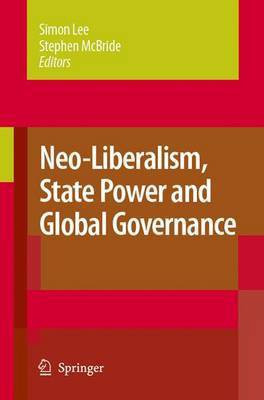Neo-Liberalism, State Power and Global Governance(English, Electronic book text, Lee Simon)
Quick Overview
Product Price Comparison
The volume explores the relationship between neo-liberalism, state power and global governance. It seeks to show how neo-liberalism has failed to deliver a framework for state power and global governance capable of delivering stability and enduring prosperity. It also contends that the role of politics in general, and the state and global governance in particular, should be defined more broadly than the simple neo-liberal construction of institutions for the market. Part One explores the pattern of national differences in the exercise of state power in a variety of industrialized and developing economies, despite the pressure to converge towards the dominant neo-liberal paradigm. Part Two analyses a variety of trans-national policy prescriptions for neo-liberalism and state power. Part Three explores whether the governance of labour markets is a special case in the global economy. Part Four sets out the need for institutional reform of the neo-liberal order in trade and finance. The volume concludes that there is the prospect of a more plural approach to state power and global governance, and one that recognizes the importance of the public domain of citizenship for delivering the global public goods of security, prosperity and environmental sustainability in the twenty-first century. The distinctive features of this book are: Its range of case studies of the impact of neo-liberalism upon state power in both industrialized (i.e. Germany, Canada, England) and emergent market economies (i.e. Argentina, Mexico, Chile, Nicaragua); Its range of case studies in different policy areas (i.e. education, labour markets, competitiveness policy, competition policy, financialmarkets' governance, monetary policy); Its range of case studies of different institutions of global governance (i.e. OECD, WTO); and Its analysis and critique of neo-liberalism, in theory and practice, and its impact upon state power and global governance.


